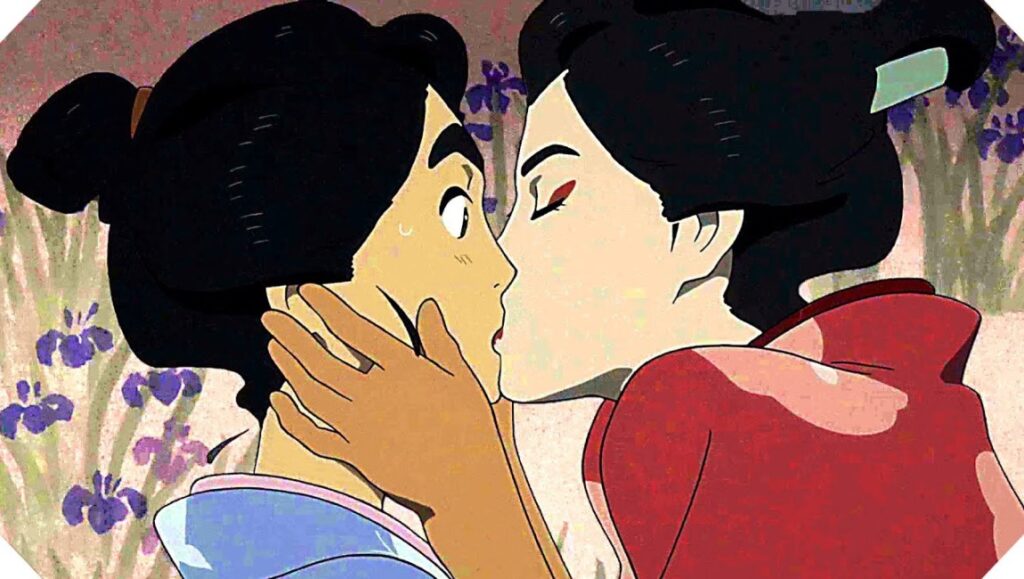Focusing on the daughter of well-known Edo-period Japanese artist Katsushika Hokusai, the episodic, contemplative anime biopic Miss Hokusai gingerly examines young O-ei’s growth as an artist in her own right, how she reconciles her work with her father’s, and the demands of a gradually modernizing Japan. Initially content to assist a womanizing, often indifferent dad with his projects (sometimes completing them for him), a series of mostly unconnected events begin to shift O-ei’s point of view and her identity in directions society and her father initially find uncomfortable. Much is made of her interactions with clumsy suitors who generally ignore her talents, and even more time is spent on her caring for a blind half-sister whom Hokusai refuses to acknowledge.
Lyrical sequences in Keiichi Hara’s film, like the one in which a medium reveals O’ei’s ghostly powers during a seance—her hands forming ghostly tendrils that drift through the city, observing everything, while O-ei wonders what might happen if they were lopped off—reveal subtly feminist underpinnings, while deliberate anachronisms (contemporary colloquial dialogue and a sometimes distractingly modern score) tie the past directly to the present, especially in a final shot juxtaposing 18th-century Edo with modern-day Tokyo. Partly reminiscent of the great Yamada Yoji in its light melancholy, and of Shunji Iwai (appropriately, considering his retrospective at this year’s NYAFF) in its playful dodging of expectations and its depiction of young women.
Published as part of New York Asian Film Festival 2016.


Comments are closed.